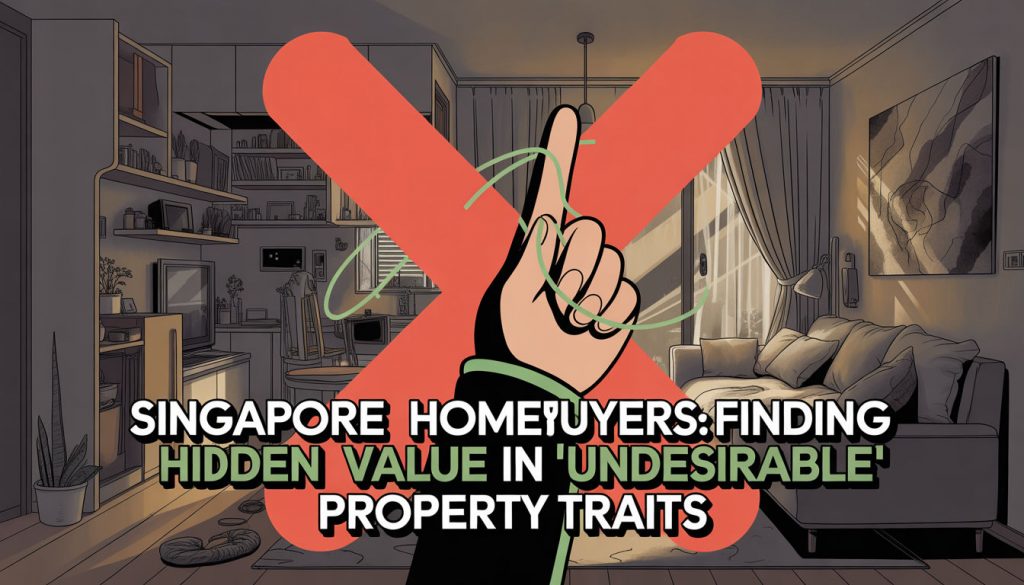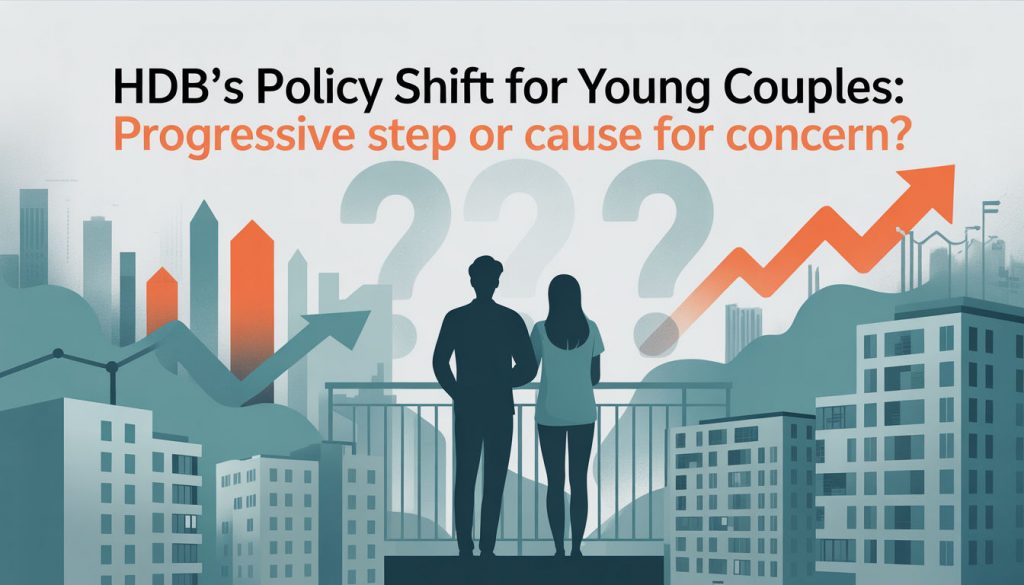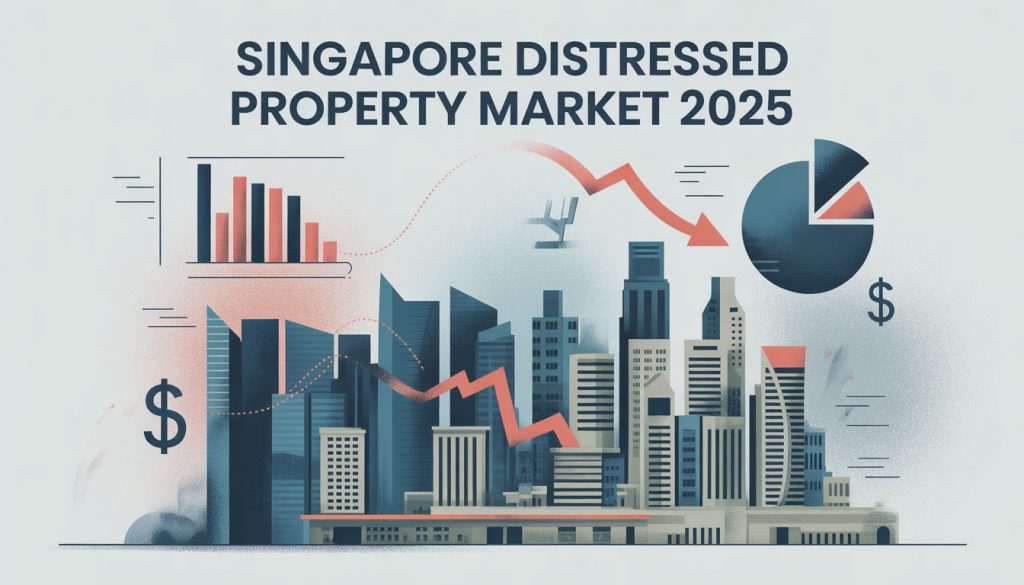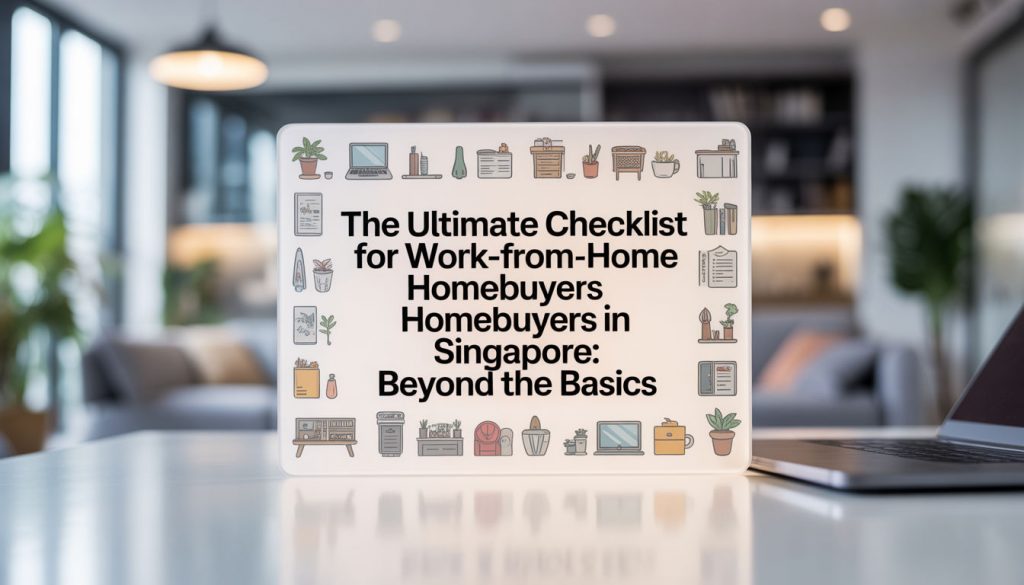
Selling Tips
Buying Tips
-
1
HDB’s Policy Shift for Young Couples: Progressive Step or Cause for Concern?
Jayson Ang – June 27, 2025 -
2
Singapore Distressed Property Market in 2025: Separating Fact from Fiction
Jayson Ang – June 23, 2025 -
3
The Ultimate Checklist for Work-From-Home Homebuyers in Singapore: Beyond the Basics
Jayson Ang – June 19, 2025 -
4
Singapore Homebuyers: Finding Hidden Value in ‘Undesirable’ Property Traits
Jayson Ang – June 15, 2025 -
5
Why Are Singapore Property Agents So Keen on New Launch Condos? Unpacking the Motivations in 2025
Jayson Ang – June 11, 2025 -
6
Three Singaporeans Share Their Experiences of Co-Owning a Property with Friends
Jayson Ang – March 18, 2025 -
7
The Importance of Caution Regarding Property Oversupply in Singapore
Jayson Ang – March 10, 2025 -
8
Is Lifelong Renting a Viable Option in Singapore?
Jayson Ang – March 6, 2025 -
9
Property Unpacked: Is GLS Impacting Property Values?
Jayson Ang – March 2, 2025 -
10
I Wouldn’t Rely Too Heavily On Discounts Related To ABSD This Year
Jayson Ang – February 28, 2025 -
11
Is Renting Out Your HDB to Live in a Condo a Smart Move? How Rentvesting Can Help You Save Money
Jayson Ang – February 18, 2025 -
12
4 Intriguing Property Trends in Singapore for 2024
Jayson Ang – February 10, 2025 -
13
With a population of 6.04 million in Singapore, who are the winners and losers in the property market?
Jayson Ang – February 9, 2025 -
14
When Should You Consider Investing in Singapore Property, and When Should You Avoid It?
Jayson Ang – February 2, 2025 -
15
Single, Over 35, and Searching for a Home? Here’s Your Guide to Choosing Between an HDB and a Condo!
Jayson Ang – January 21, 2025 -
16
Larger Living Spaces: The New Demand Surge Post-Pandemic
Jayson Ang – January 13, 2025 -
17
The High Price of Picking the Wrong Property in Singapore in 2025
Jayson Ang – January 9, 2025 -
18
Neighbourhood Estate Guide: Is Holland Village the Most Charming and Relaxed of HDB Estates?
Jayson Ang – January 1, 2025 -
19
Ultimate Handbook on HDB Income Ceilings for BTO, Resale Flats, and Executive Condominiums
Jayson Ang – December 23, 2024 -
20
Unveiling the Secrets: How Foreigners Can Buy Property in Singapore – 6 Essential Steps to Follow
Jayson Ang – December 19, 2024 -
21
What Difference in One Year After the ABSD Hike in April 2023?
Jayson Ang – December 7, 2024 -
22
UNCOVERING the Secret to Profitable Small Boutique Condos!
Jayson Ang – November 30, 2024 -
23
Can You Still Make Money from Older Freehold Condos in Singapore
Jayson Ang – November 23, 2024 -
24
Methods to Beat ABSD and Own Multiple Properties in 2024 (Updated)
Jayson Ang – November 19, 2024 -
25
6 Compelling Reasons Why 3-Bedroom Condos Might Shrink Further
Jayson Ang – November 15, 2024 -
26
6 Indicators and Measures to Determine if Your Home Has Unrecognized Profits
Jayson Ang – November 11, 2024 -
27
3 Errors to Steer Clear of When Transitioning from Private Property to an HDB Flat
Jayson Ang – November 7, 2024 -
28
Should You Keep Your Resale HDB Flat When Buying a Private Property? 5 Key Factors to Consider
Jayson Ang – November 3, 2024 -
29
7 Essential Tips for Finding Your Perfect Retirement Home
Jayson Ang – October 27, 2024 -
30
Discover Affordable Executive Condos in 2024 Starting at $560,000
Jayson Ang – October 23, 2024
-
Explore
Reports
Jayson AngOpinion
Jayson AngBuying Tips
Jayson AngSelling Tips
Jayson AngBlog Posts
Jayson AngThe GROW Method
Jayson AngFree Singapore Property Seminars
Jayson AngBlog
Jayson AngTrack Record
Jayson AngExplore
Jayson AngSupport
Jayson AngeBooks
Jayson AngArticles
Jayson AngTestimonials
Jayson AngCase Studies
Jayson AngDaily Posts
Jayson AngResources
Jayson AngConsultation
Jayson AngFor Buyers Sellers
Jayson AngContact Jayson Ang
Jayson Ang10 Reasons To Engage Jayson Ang
Jayson AngAbout Jayson Ang
Jayson AngOpinions
HDB’s Policy Shift for Young Couples: Progressive Step or Cause for Concern?
Jayson AngTLDR Starting July 2025, HDB will let young couples—where at least one partner is a full-time student or NSF—defer income assessment for BTO loans until flat key collection. This helps...Singapore Distressed Property Market in 2025: Separating Fact from Fiction
Jayson AngTLDR Mortgagee sale listings in Singapore rose in Q1 2025, mainly due to higher interest rates in recent years. Despite more distressed properties hitting the market, bargains are rare—banks set...Why Are Singapore Property Agents So Keen on New Launch Condos? Unpacking the Motivations in 2025
Jayson AngTLDR In Singapore’s 2025 property market, agents’ strong preference for recommending new launch condos is less about chasing commissions and more about adapting to current realities: commission differences between new...Three Singaporeans Share Their Experiences of Co-Owning a Property with Friends
Jayson AngTLDR In Singapore, some individuals venture into property investments with unrelated partners, driven by opportunities and personal circumstances. Jim, leaving finance during the 2009 crisis, invested in real estate with...Is it Better to Sell Your Newly Launched Condo Before or After Completion? Here’s What the Statistics Indicate
Jayson AngTLDR Determining the best time to sell a newly launched condo involves weighing the benefits of selling before or after the project's completion. Selling early can lead to quicker profits...
Advanced Search
Advanced Search
Your search results

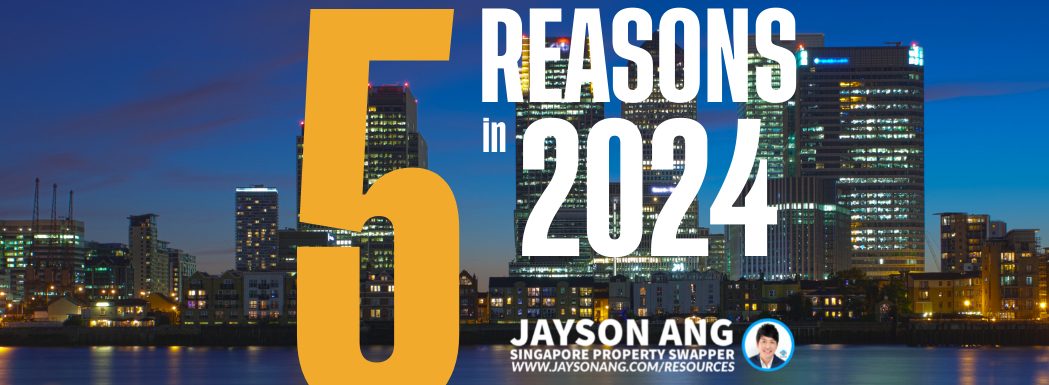
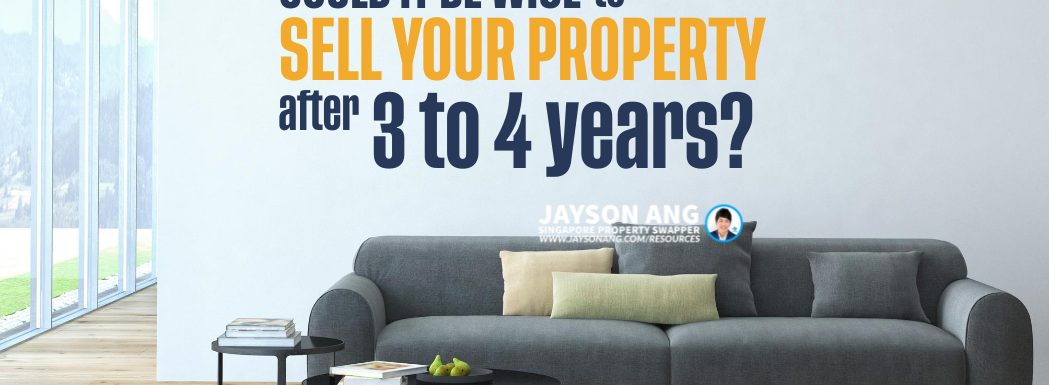

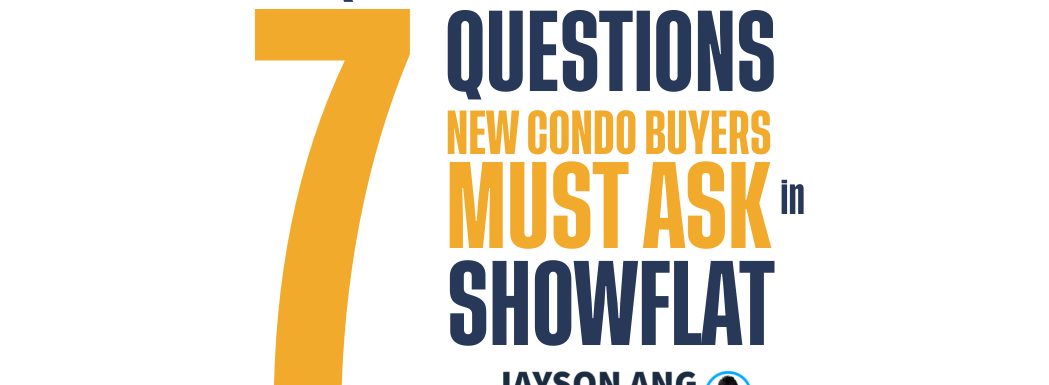



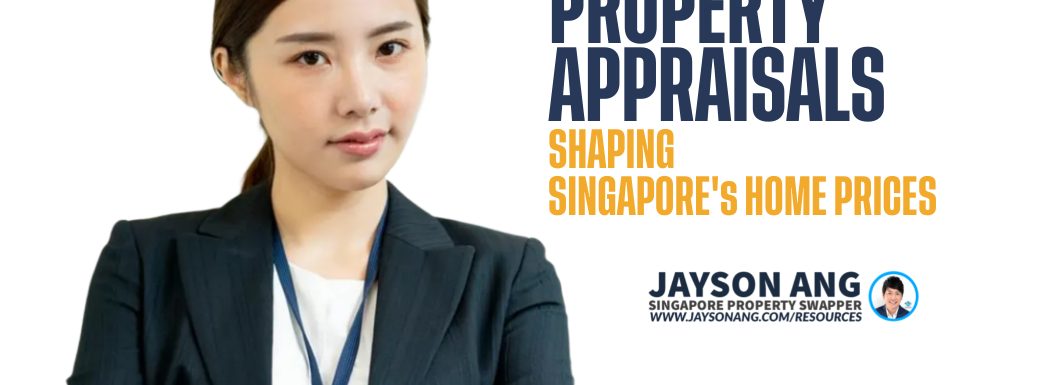


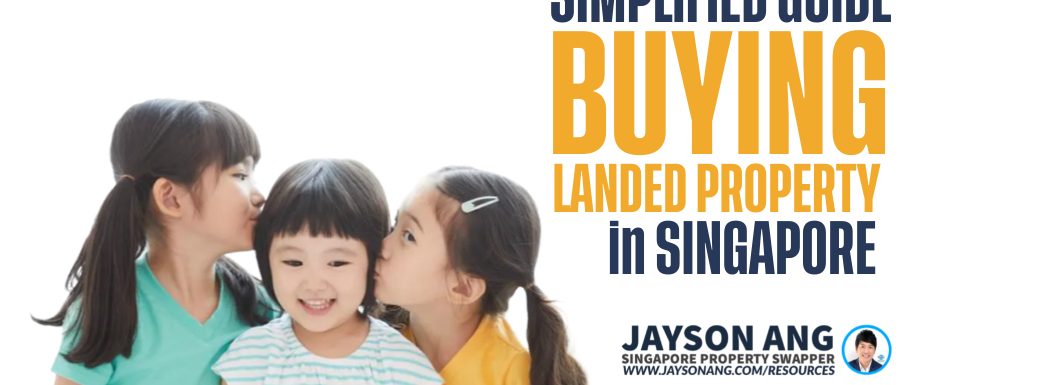
Category Archives: All

Why Can’t We Buy Low, Sell High?
Madam Tan voiced that approximately two years ago, when her apartment hit its minimum occupation period, she and her spouse deliberated over selling their abode, considering the favorable conditions for sellers. Although their home could have garnered a considerable amount on the resale market, Madam Tan observed that the cost of a new residence would likely offset any profit, unless they opted to downsize. …

5 Reasons To Invest In UK Property In 2024 Instead Of ...
TLDR Investing in UK property in 2024 offers significant advantages over saving due to the potential for long-term value growth, protection against inflation, stable investment opportunities, additional income streams, and high demand exceeding supply. Comparing investment scenarios between now and 2026, acting now could yield an additional £25,000 by 2026. Consulting with a knowledgeable advisor can help you navigate the current real estate market …

Could It Be Wise to Sell Your Property After Just 3 to...
TLDR In this blog post, the writer delves into the Singapore property market, particularly focusing on the effectiveness of quick buy-and-sell strategies. Analyzing data from 2017, it was found that selling within three to four years can lead to an average profit of 15.8%. The post highlights key differences between new-to-resale and resale-to-resale deals, emphasizing the impact of early bird offers and Seller’s Stamp …

What’s Needed For Singapore To Lift Those Coolin...
TLDR The blog post discusses the recent relaxation of real estate restrictions in Hong Kong, contrasting with Singapore’s stricter regulations. It explores the impact on foreign investors, cultural influences, and potential shifts in the property market. Additionally, it touches on parking issues in both Singapore and Hong Kong, proposing solutions to promote a car-lite society. Lastly, it mentions considerations for buying or selling real …

7 Frequently Overlooked Questions That New Condo Buyer...
TLDR Newly launched condominium buyers face uncertainties about price changes, proximity to schools, construction methods, maintenance costs, elevator availability, commercial management, and waste disposal systems. Understanding these factors can impact investment decisions significantly. The issue with newly launched condominiums is that you’re largely buying into an idea, not a tangible product. Instead of concrete walls you can knock on, you’re investing based on promotional …

Is the Singapore Property Market Set for a Dip in 2024...
TLDR The Singapore property market is experiencing shifts with Morgan Stanley adjusting its outlook on major developers. A forecast predicts a 3% drop in housing prices in 2024 due to various factors. Massive developments completed in 2023 have impacted property prices, averaging between $2,100 to $2,300 per square foot. Challenges include HDB owners hesitating to upgrade and the high cost of new properties. The …

3 Steps to Prevent Rental Scams
TLDR: Prevent Rental Scams in Real Estate Scammers are targeting prospective tenants by impersonating Real Estate Salespersons (RES) to deceive victims into making payments for deposits. To avoid falling victim to such scams, consumers should follow three crucial steps: Verify CEA Registration: Ensure that the RES’s CEA registration matches the CEA’s registry. Check Contact Details: Confirm that the RES’s contact number is registered with …

2024 Will Be A Buyers Market
TLDR 2023 saw a roller-coaster ride in the real estate market, with various challenges like high interest rates and geopolitical uncertainties. Despite this, market confidence remains steady, and 2024 is predicted to see a modest increase in private housing prices. Developers are adjusting their strategies to navigate the market landscape, focusing on early sales milestones and market-sensitive pricing. For buyers in 2024, understanding their …

The Sneaky Role of Property Appraisals in Shaping Sing...
TLDR When it comes to the real estate market in Singapore, understanding property valuations and the impact on mortgage loans is crucial. Property valuations can be subjective, influenced by recent transactions and bank valuations. Higher valuations can lead to higher loan amounts but also impact property prices. It’s essential to consider the implications of accepting a higher valuation, including increased interest rates and stamp …

I Regret Buying A DBSS: 5 Homeowners Share Their Bigge...
TLDR Singapore’s DBSS scheme faced challenges such as design flaws, developer responsiveness issues, and restrictions on selling. Residents reported various grievances like cramped spaces, visibility concerns, and renovation quality. Despite these drawbacks, DBSS flats remain popular due to their location and market demand. Prospective buyers should consider these factors before purchasing a DBSS flat. Launched in 2005 but canned in 2011, folks still chat …

Singapore’s HDB Projects: From Unique Landmarks ...
Take a look at this chill spot in Yew Tee. Someone’s gone all out to make it feel like an old-school kampung. It’s all natural, no town council planning involved. It’s simply a place where folks come together. But as you might guess, they’ve been told to pack up and leave. Now, they aren’t trying to shut down the hangout completely. They just want …

Simplified Guide to Buying Landed Property in Singapor...
TLDR When considering buying a landed property in Singapore, you have options like terrace homes, semi-detached houses, and bungalows. Understanding the different types and their unique characteristics is essential before making a purchase. Prices vary significantly, with terrace homes starting around $4 million, semi-detached houses over $5 million, and bungalows around $11 million. Factors like location within Singapore can also impact pricing. Financing options …

